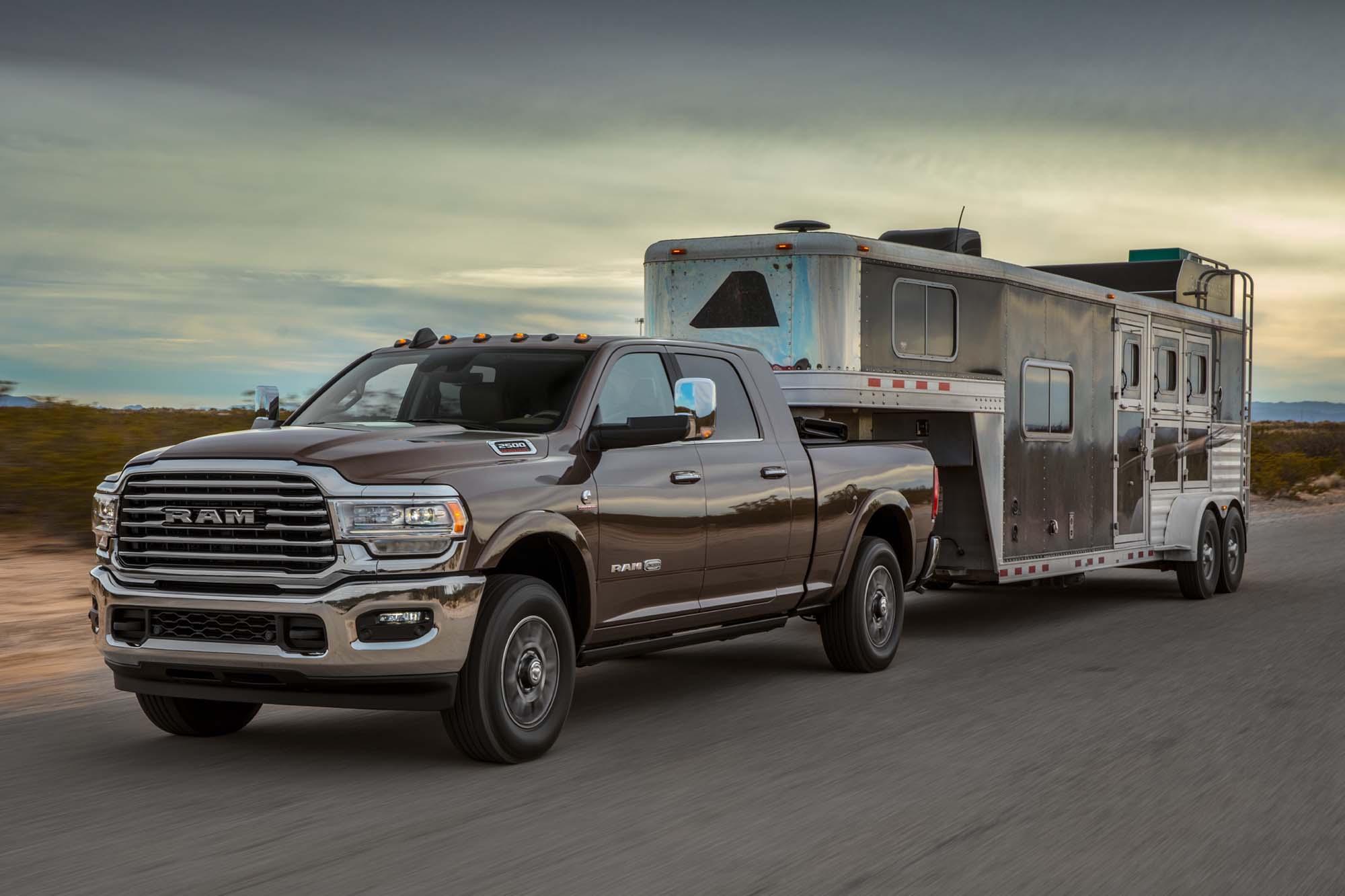3 Reasons Diesel Vehicles Are Great for Towing
Torque, durability, and efficiency help make diesel engines excellent for tow vehicles.
 Ram
Ram
Whether it's under the hood of a tractor-trailer or a family-hauling SUV, for drivers who tow, a diesel mill offers inherent advantages over a gasoline engine, and tow ratings reflect this.
For example, with its turbocharged 6.7-liter inline-six diesel, the 2024 Ram 2500 Heavy Duty can tow up to 19,990 pounds, while trucks with the gas-powered 6.4-liter V8 can handle only 17,730 pounds. The 2,260-pound difference is nearly the weight of a 2024 Mazda MX-5 Miata.
Diesel Engines Have a Lot of Torque
Broadly speaking, a diesel engine generates more torque than a comparable gasoline engine.
This is due to the fact that diesels have a higher compression ratio and a longer stroke than their gas counterparts. Additionally, many diesel engines are turbocharged. All of these factors increase torque output, and it’s not uncommon for a diesel engine to generate more torque than a gas engine with more cylinders, displacement, or both.
Torque is key to accelerating from a stop, and this advantage is particularly evident when a vehicle is pulling a load.
Diesel Engines Are Fuel Efficient
Whether your vehicle runs on gasoline or diesel, towing significantly impacts fuel economy. This is another area where diesel vehicles have the edge on gas models, as diesel fuel contains more energy than a similar volume of gasoline.
A quick look at the specs of gas and diesel models illustrates the advantage. When equipped with the 5.3-liter gas engine, a four-wheel-drive 2024 Chevrolet Suburban is EPA rated at 15/18/16 mpg city/highway/combined. That's good enough for an estimated range of 448 miles. Swap that engine for a turbocharged six-cylinder diesel, however, and those figures jump to 20/26/22 mpg and 616 miles of range.
Diesel Engines Are Durable
It should come as no surprise that when pulling extra weight, a vehicle's powertrain needs to work harder.
Since diesel engines are built with parts designed to withstand higher compression ratios and run at lower revolutions, they're generally more durable than comparable gasoline engines. In turn, they're designed to better handle the strain towing puts on internal engine components such as bearings, connecting rods, and the crankshaft.
This is one of the reasons a properly maintained semi engine is generally expected to last around 700,000 miles and hitting a million miles isn't uncommon.
Written by humans.
Edited by humans.
 Ronan Glon
Ronan GlonRonan Glon is an American journalist and automotive historian based in France. He enjoys working on old cars and spending time outdoors seeking out his next project car.
Related articles
View more related articles